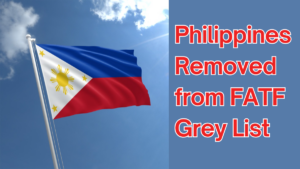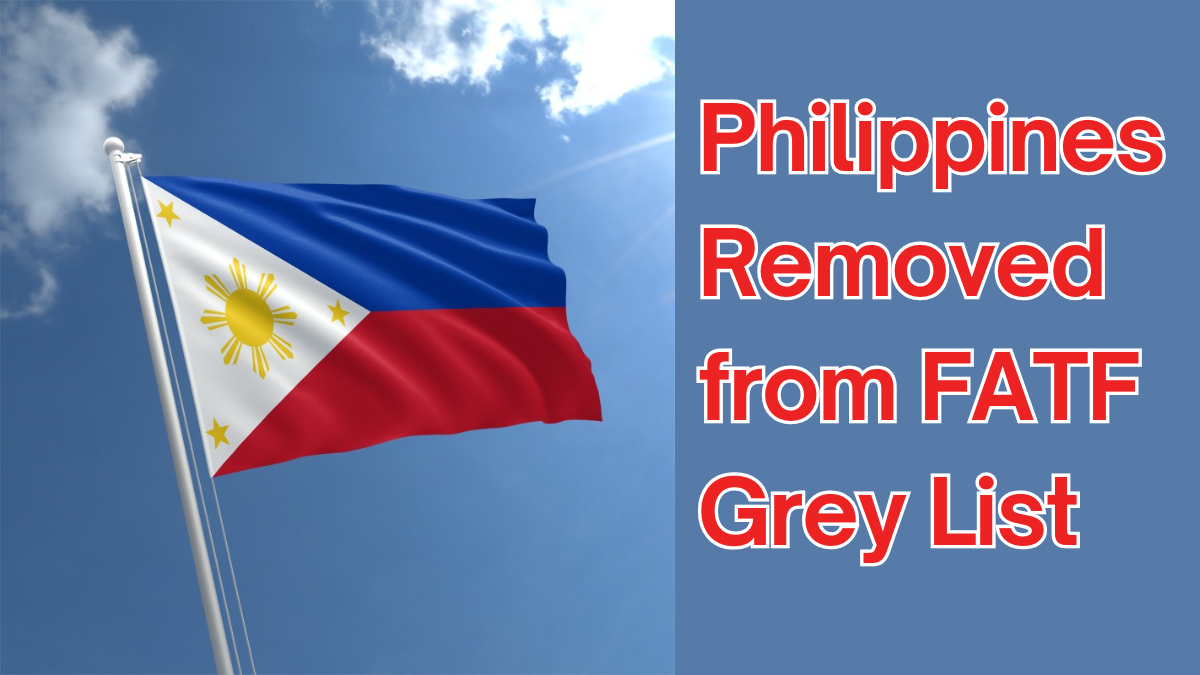In a significant development, the Philippines has officially been removed from the Financial Action Task Force (FATF)’s “Grey List” of nations under increased scrutiny for their anti-money laundering and counter-terrorism financing measures. This decision marks a positive milestone for the country’s financial system, signaling international recognition of the efforts made in strengthening its anti-money laundering (AML) framework. Meanwhile, the FATF has added Laos and Nepal to its list of nations requiring increased monitoring due to concerns regarding their progress in addressing financial crimes.

FATF’s Grey List: Implications and Significance
The FATF, a global money-laundering watchdog, monitors countries’ compliance with international standards aimed at preventing money laundering and the financing of terrorism. The “Grey List” includes nations that are deemed to have deficiencies in their AML measures but have committed to addressing them within a specified timeframe.
For the Philippines, removal from the grey list means that it is no longer subject to the FATF’s increased scrutiny. This marks an important achievement as the country has been working diligently to enhance its AML laws and practices to meet international standards. Being removed from the grey list will likely result in enhanced confidence from foreign investors and improved access to international financial markets.
Key Improvements by the Philippines
The Philippines’ removal from the FATF grey list reflects its significant progress in reforming its anti-money laundering measures. Some of the key steps taken by the country include:
- Strengthened AML Legislation: The country has enhanced its laws to ensure better monitoring of financial transactions and a more stringent regulatory environment.
- Enhanced Regulatory Framework: The creation of stronger institutions for monitoring and enforcing AML regulations has played a key role.
- International Cooperation: The Philippines has worked closely with international organizations to align its practices with global standards.
- Improved Enforcement: Increased efforts have been made to ensure the proper enforcement of anti-money laundering laws.
This removal is a clear indication that the Philippines has met the necessary standards and has demonstrated a commitment to fighting illicit financial activities.
Laos and Nepal Added to Increased Monitoring List
While the Philippines’ successful exit from the grey list is being celebrated, Laos and Nepal now face closer scrutiny from the FATF. Both countries have been added to the “Increased Monitoring” list, which includes nations that are making progress toward meeting FATF standards but have yet to fully comply with international guidelines on money laundering and terrorism financing.
These countries are now required to address gaps in their regulatory frameworks and work towards achieving full compliance with FATF recommendations. This increased monitoring means that these nations will face additional international scrutiny, which could impact their global financial standing and economic relations.
Impact on the Philippines and Other Nations
The Philippines’ successful removal from the FATF grey list is expected to have several positive implications for the country:
- Increased Foreign Investment: Investors typically view countries on the grey list as riskier, so removal may boost investor confidence in the Philippines.
- Enhanced International Reputation: The country’s improved AML measures will help in bolstering its standing in the global financial community.
- Stronger Financial Sector: The Philippines’ financial institutions will benefit from more robust AML frameworks, reducing the risk of financial crimes.
For Laos and Nepal, being added to the increased monitoring list presents challenges. These countries now have to work swiftly to enhance their AML systems or face potential consequences such as reduced foreign investment and increased scrutiny from international financial institutions.
Conclusion
The Philippines’ exit from the FATF grey list is a significant achievement that highlights its ongoing commitment to combating money laundering and terrorist financing. The country’s progress serves as an example for other nations seeking to strengthen their financial regulatory frameworks. However, with Laos and Nepal now on the increased monitoring list, it is clear that the FATF remains vigilant in its efforts to ensure global compliance with AML and counter-financing of terrorism standards. Moving forward, countries will need to continually improve their regulatory systems to prevent financial crimes and maintain access to global financial markets.
People May Ask
What is the FATF Grey List?
The FATF Grey List is a list of countries that have weak anti-money laundering and counter-terrorism financing measures, but are committed to improving their compliance with international standards.
Why was the Philippines removed from the FATF Grey List?
The Philippines was removed due to its significant progress in strengthening its anti-money laundering laws, improving regulatory frameworks, and enhancing enforcement mechanisms.
What does the “Increased Monitoring” list mean for Laos and Nepal?
Being added to the “Increased Monitoring” list means that Laos and Nepal will face heightened scrutiny by the FATF and must make significant improvements to their anti-money laundering systems.
How does the FATF’s decision impact global financial relations?
Countries removed from the grey list often experience improved investor confidence, better access to international financial markets, and enhanced global reputations.
What actions are expected of Laos and Nepal?
Laos and Nepal must address deficiencies in their financial regulations, improve enforcement, and align their systems with FATF recommendations to avoid further consequences.
Pari is a passionate writer known for captivating stories that blend imagination and reality. Inspired by travel, history, and everyday moments, Pari crafts narratives that resonate deeply with readers.
